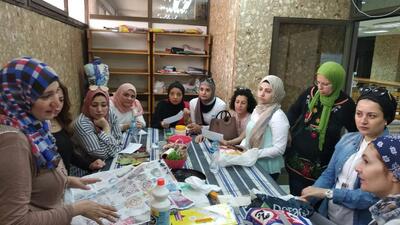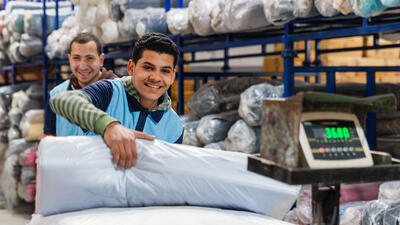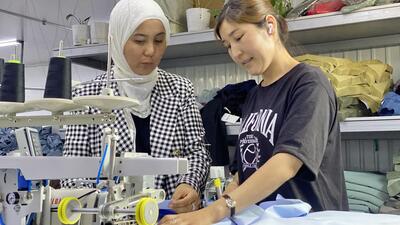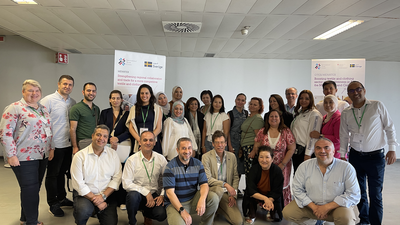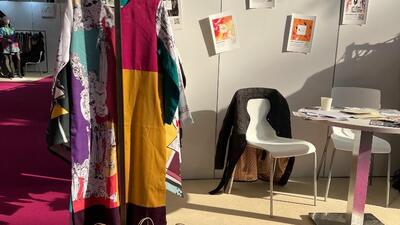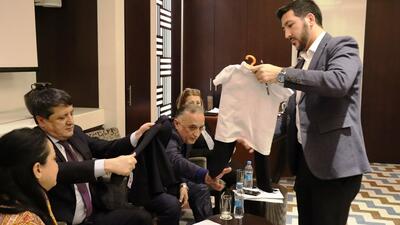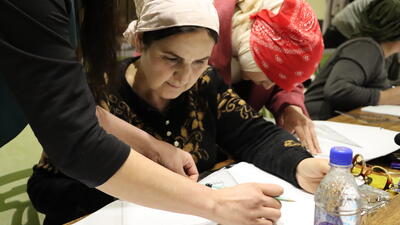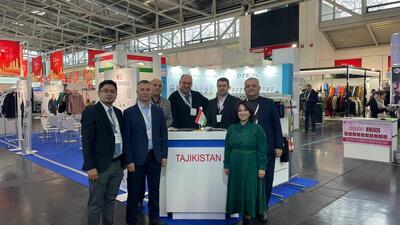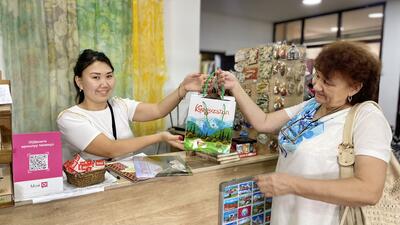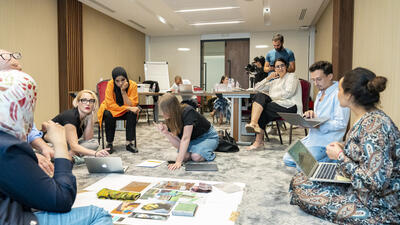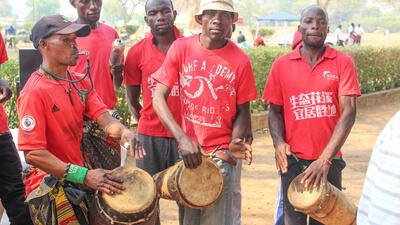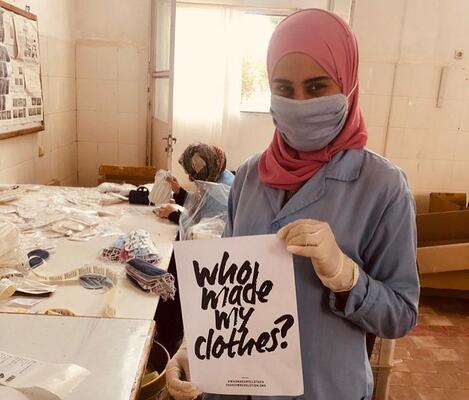
A silver lining
Textiles and clothing companies are seizing new opportunities in Egypt.
Although medical doctor Ali El Nawawi is an experienced professional in the areas of international cooperation and health, COVID-19 presented him with a completely new challenge.
During the pandemic, Dr El Nawawi found himself working not as a health professional, but as an entrepreneur running a small enterprise, Scarabaeus Sacer, in the clothing sector in Egypt. Together with Co-Founder May Kassem, a psychologist with prior experience in the garment and textile industry, they decided to respond to the global crisis through their business.
The textiles and clothing sector is Egypt's second-biggest industrial sector after agro-industry. Exports consist mainly of ready-made garments and home textiles. The industry was among the most affected by the COVID-19 outbreak. According to the Apparel Export Council of Egypt, textile exports dropped by 29% in the first semester of the year and a decline in production of 40% is imminent. Companies also faced severe financial issues as international companies started to cancel orders and there were delays in payments and deliveries.
Following the government's guidelines to keep employees safe and in good health, Scarabaeus Sacer shifted the production to ethical, sustainable and affordable masks.
"The impact of COVID-19 on our business was surprisingly positive. We managed to pivot our production to produce cloth masks and sell them at home and internationally," said Dr El Nawawi.
The new production line showed impressive results. The fifth batch of masks is already in production.
According to the ITC's 2020 SMECO report, Egypt is the leading African exporter of synthetic nonwoven fabrics, an essential material for filtered masks production. The African continent as a whole is responsible for 3.5% of the world exports of these fabrics. However, mask manufacturing in the continent has been limited and would need an allocation of 7% of the world's synthetic nonwoven fabrics production to meet with Africa's monthly requirement.
Ms. Kassem explains that as they saw the number of cases increasing in the country, the company proactively took the necessary measures to ensure production could continue.
"As COVID-19 advanced in our country, we decided to target the Egyptian market but also to offer support to other countries in the MENA region," she explains.
As a health worker, Dr El Nawawi emphasized the responsibility to support those in the front-line fighting COVID-19. "We are a company that values ethical and sustainable production; we also donated masks to an entity called Benhayikom that supports healthcare workers in the field."
With fresh eyes, Scarabaeus Sacer focused on improving its customer relations, infrastructure, logistics and online presence. "We had an online store from the beginning of our business. With the COVID outbreak, we considered it important to re-structure our website to improve our clients' shopping experience," says El Nawawi.
He believes that virtual reality and online shopping will be the new norm with the support of technological advancement.
The International Trade Centre through its GTEX/MENATEX programme, has adapted project activities to support Egyptian companies during the crisis. In-person workshops and events have been converted into webinars, online consultations and online coaching. Dr El Nawawi was among the participants in these online workshops.
"Participating in the project, we are exposed to new technologies, new textiles, sustainable/eco-friendly practices, and important certification requirements for our business, in addition to crucial business and market information that we receive. This will strengthen our competitiveness in global markets," said Dr El Nawawi.
For the future, the two Co-Founders of Scarabaeus Sacer, El Nawawi and Kassem, are keen to explore collaborating with global ethical brands to meet buyers interested in sustainability, to connect with universities researching new fabrics, and to introduce them to the Egyptian market.
They are ready to share their experience with other textile and clothing entrepreneurs, inviting them to look at the current situation as an opportunity to diversify. There is always an opportunity waiting to be seized, no matter how dire the circumstances might be.
The GTEX MENATEX programme is funded by the State Secretariat for Economic Affairs (SECO) of the Swiss Confederation and the Swedish International Development Cooperation Agency (Sida), focusing on six priority countries (Egypt, Morocco, Jordan, Kyrgyzstan Tajikistan and Tunisia). The programme aims to encourage exports of textiles and clothing from developing countries to promote employment and income generation throughout the value chain.




